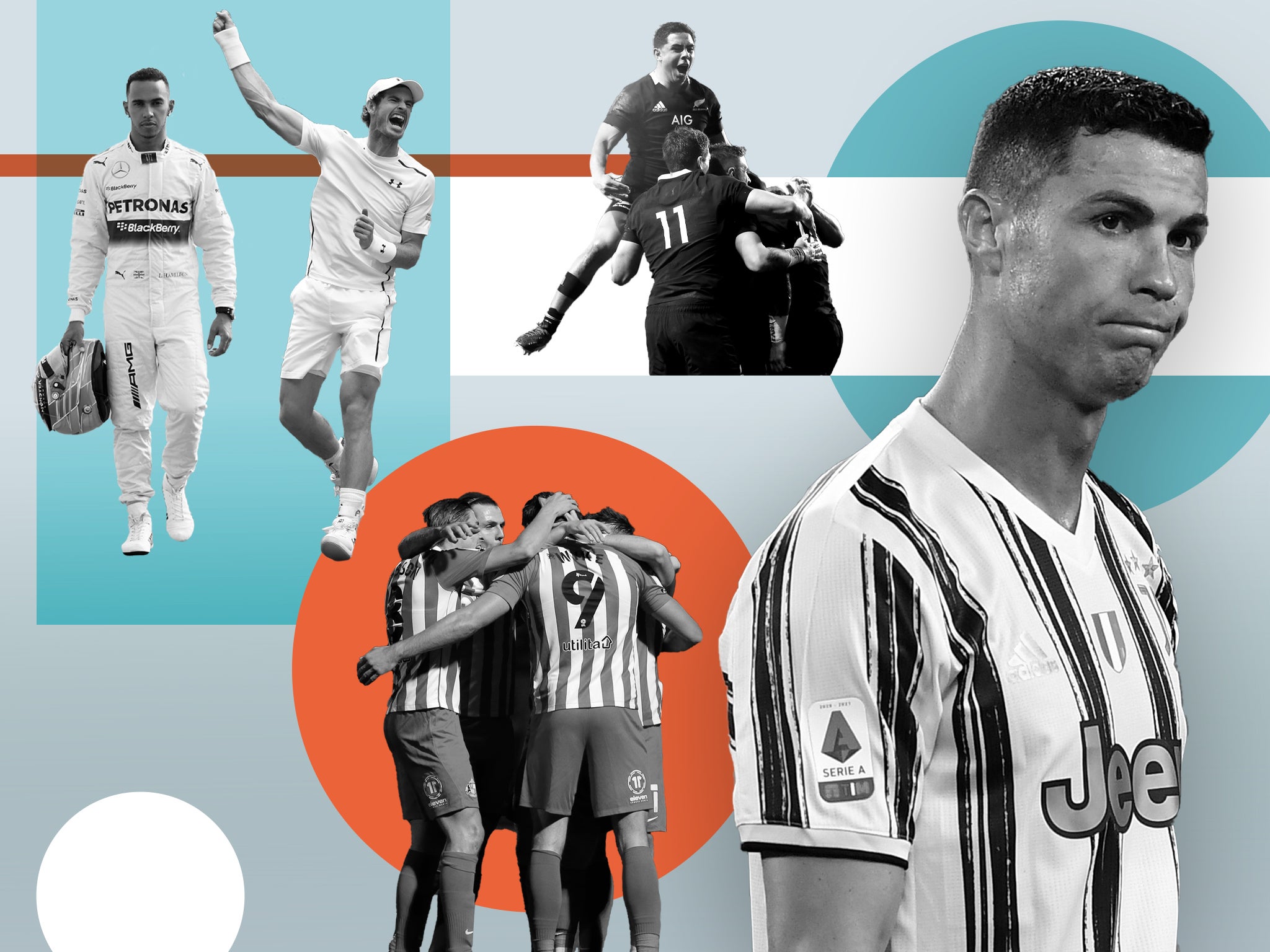‘You might as well film a tree’: Ronaldo, Murray and the long line of toothless, banal sports documentaries
The new Ronaldo documentary is the latest in a glut of similar films. But if they’re really ‘fly on the wall’, asks Ed Cumming, why don’t we see the affairs, gambling problems, and rows over who took the bins out?

Impossible to Ignore is a strange title for the new film about the footballer Cristiano Ronaldo. Provided you are not a Serie A goalie, Cristiano Ronaldo is highly ignorable. My wife says she finds it easy. Wasps and traffic wardens are impossible to ignore. Ronaldo does his thing regardless of whether you are paying attention. Whatever you’re up to, he’s somewhere out there, running, jumping, whacking a ball into a goal. Even if nobody is there in the forest to see it, the tree will still be falling down, just inside the box, after minimal contact.
Still, if you’re not familiar with Ronaldo’s work, the documentary – which aired on Saturday night – gives you a rundown of the basics. It paints a kind of Nietschean otter-superman, as hairless as an egg from the nose down, with a Michelangelo-carved physique, a blessed touch and a near-psychopathic will to win. He grew up in Madeira, where these qualities were soon noted, and since then he has won trophies and scored many goals with Sporting Lisbon, Manchester United, Real Madrid and Juventus. Talking heads discuss these qualities with reverence. Why observe Ronaldo’s skills and goals and the cold hard facts of his record for yourself when you can have Rio Ferdinand, wide-eyed, explain that it wasn’t only football. Ronaldo also disliked losing at ping-pong.
These documentaries about sportsmen while they’re still playing are a curious phenomenon. We’re in the midst of a glut of them. There was the Andy Murray one, the Lewis Hamilton one, the Sunderland one, the Manchester City one, the All Blacks one. They are very different from historic sports documentaries, like Asif Kapadia’s Senna and Maradona films, or the cricket film Fire in Babylon, which place epochal figures in their full context.
The thinking with the new breed of docs seems to be that if you like watching sport, you will also like watching the sportsmen for many hours. I’ve found it baffling. When they’re made with the consent and collaboration of the players in question, these programmes are toothless PR exercises. This is especially true when they’re marketed as not being PR exercises. “Behind the scenes” and “fly on the wall”. We never get to see the affairs, gambling problems, drug addictions, divorce, rows over who took the bins out or other thousand disappointments of normal people. You get sports problems, which basically boil down to not being picked, injuries and losing.
Take Amazon’s The Test, which follows the Australia cricket team as they attempt to regain superiority over England. A two-team rivalry is as easy as narrative comes: you just point a camera at a low point and wait for the inevitable reverse. You might as well film a tree in January and title it The Test: Will It Ever Be Spring Again? The most startling revelation was that one of the players, Adam Zampa, was into coffee. The high point of emotion was when their coach, Justin Langer, kicked a bin. In the whole one-hour Ronaldo film, there is almost zero insight.
It’s not the fault of the filmmakers. If it was easy to explain these gifts, they would stop being interesting. The world No 2 tennis player Naomi Osaka offered a window on the problem from the other side of the fence this week when she withdrew from the French Open after saying she would no longer endure press conferences. They had been bad for her mental health.
When I watch a press conference, I don’t want to hear from the best players. I want to hear from the best press conferencers. A better solution would be a separate tournament. Rather than being uniformly forced to answer repetitive questions from middle-aged men in bad clothes, sportsmen and women ought to compete for the right to hold them. A separate ranking system could reward players for petty feuds, hubristic grandstanding, wry banter, specific beefs, and crying. Andy Murray would have had less grief had journalists not endlessly bemoaned that he wasn’t Graham Norton in his post-match interviews.
In a way it’s a talent of its own, to be the subject of a fawning hour-long film without betraying even a hint of interior life. Watching the facts of Ronaldo’s life play out, I realised that this banality is the secret of the format’s success. When I watch Ronaldo play football, I’m normally reminded of what a limited version of a man I am. He’s built like a cathedral; I’m built out of Cathedral City. He makes more in a morning than I make in a year. His life is one of adoration from his teammates and fans, jealous hatred from his opponents. I just get commenters telling me I look like the sort of a dog a fat prep school headmaster would own. Thinking about Ronaldo off the pitch, though, seeing the price of his twinkle toes, I’m not sure I’d swap places.
Subscribe to Independent Premium to bookmark this article
Want to bookmark your favourite articles and stories to read or reference later? Start your Independent Premium subscription today.

Join our commenting forum
Join thought-provoking conversations, follow other Independent readers and see their replies